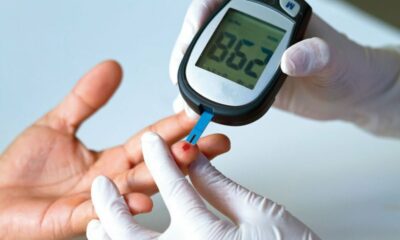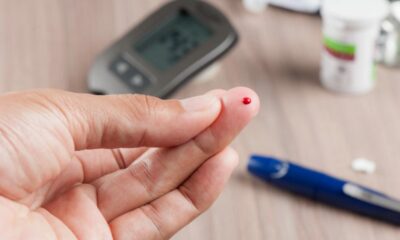In Type 2 diabetes, insulin resistance and elevated insulin levels can hinder weight loss efforts, making it more challenging for diabetics to lose weight.
1. Understanding Insulin’s Role in the Body
- What is Insulin?: A hormone produced by the pancreas, insulin allows cells to absorb glucose from the bloodstream to be used for energy or stored as fat.
- Insulin Resistance in Type 2 Diabetes: In diabetics, cells become resistant to insulin, requiring more insulin to keep blood sugar levels in check. This excess insulin leads to more glucose being stored as fat, which can result in weight gain.
2. The Impact of High Insulin Levels on Weight
- Increased Fat Storage: High insulin levels encourage the storage of excess glucose as fat, especially around the abdominal area.
- Inhibiting Fat Burning: Elevated insulin levels also make it difficult for the body to break down stored fat for energy, which hampers weight loss efforts.
- Frequent Hunger: Insulin promotes hunger by reducing blood sugar too quickly, leading to frequent cravings and overeating.
3. Managing Insulin for Weight Loss
To achieve weight loss, diabetics must focus on regulating insulin levels. Here are strategies to help:
A. Low-Carbohydrate Diet
- Lowering Carbs to Reduce Insulin: Eating fewer carbohydrates can lower the demand for insulin, leading to better fat metabolism.
- Complex Carbohydrates: Focus on foods with a low glycemic index, such as whole grains, vegetables, and legumes, which lead to a slower rise in blood sugar and reduced insulin production.
B. Time-Restricted Eating or Intermittent Fasting
- How Fasting Affects Insulin: Intermittent fasting can help lower insulin levels, allowing the body to access stored fat for energy.
- Improved Insulin Sensitivity: Fasting has been shown to improve insulin sensitivity, making it easier for the body to regulate blood sugar and utilize fat.
C. Regular Physical Activity
- Exercise Lowers Insulin Resistance: Physical activity increases the body’s ability to use glucose efficiently, reducing the need for excess insulin.
- Fat Burning Through Exercise: Aerobic exercises like walking, cycling, and swimming can reduce insulin resistance and promote fat burning.
4. Insulin Therapy and Its Effects on Weight
- Insulin Use in Type 1 and Type 2 Diabetes: Many diabetics require insulin therapy to manage blood sugar levels, but this can sometimes lead to weight gain.
- Managing Weight on Insulin Therapy: To counter weight gain caused by insulin therapy, it’s important to work closely with healthcare providers to adjust dosage and focus on healthy lifestyle habits.
5. Hormonal Balance and Weight Loss
- Glucagon and Fat Burning: While insulin promotes fat storage, glucagon, another hormone, promotes fat burning. A balanced insulin-glucagon relationship is essential for weight loss.
- Improving Hormonal Response: Diets that balance macronutrients (protein, fats, and carbs) help regulate both insulin and glucagon for better weight control.
6. Medications to Aid Insulin Management and Weight Loss
- GLP-1 Receptor Agonists: Medications like semaglutide (Ozempic) help improve insulin sensitivity and promote weight loss by suppressing appetite and reducing insulin production.
- SGLT-2 Inhibitors: These medications reduce blood sugar levels by helping the kidneys remove excess glucose, reducing insulin levels, and supporting weight loss.
7. Psychological Factors: The Insulin-Mind Connection
- Stress and Insulin Levels: Chronic stress can raise insulin levels by increasing cortisol production, leading to weight gain.
- Mindful Eating: Being mindful of food choices and reducing emotional eating can help manage insulin and promote weight loss.
Conclusion: Balancing Insulin for Weight Loss Success
Losing weight as a diabetic requires careful management of insulin levels. By adopting a balanced, low-carb diet, incorporating regular exercise, and using medication if needed, diabetics can improve insulin sensitivity, reduce fat storage, and achieve successful weight loss. Collaboration with healthcare professionals is essential to adjust insulin therapy and create an effective, individualized plan.

 General Medicine2 weeks ago
General Medicine2 weeks ago
 Diabetology2 weeks ago
Diabetology2 weeks ago
 Diabetology2 weeks ago
Diabetology2 weeks ago
 General Medicine2 weeks ago
General Medicine2 weeks ago
 Diabetology6 days ago
Diabetology6 days ago
 Diabetology6 days ago
Diabetology6 days ago
 Diabetology4 days ago
Diabetology4 days ago
 Diabetology4 days ago
Diabetology4 days ago
















